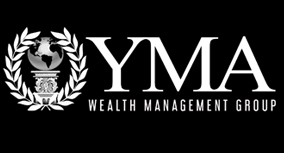Debt forgiveness is when part or all of the outstanding balance of a loan and line of credit is forgiven and the borrower requires not to pay it back.
It applies to unsecured debt such as credit card debt. For secured debt like a house mortgage, failure to pay results in foreclosure and repossession instead of debt forgiveness.
Debt forgiveness is different from debt relief, which refers to a debt payment program that helps lessen the financial burden of debt by making payments further manageable. However, debt relief doesn’t erase or forgive the debt. When considering debt forgiveness, it is important to carefully weigh the pros & cons. This way, you will be aware of any consequences of debt forgiveness, so that you may be as financially prepared as possible.
Learn All About Debt Forgiveness the Pros and Cons:
What is debt forgiveness?
A debt forgiveness strategy referred to as debt settlement is when your creditors agree to cancel some, and all, of your debts, owed. This form of debt management could be used with as some as one creditor or multiple, so long as you owe a minimum of $10,000. Furthermore, debt forgiveness is only an option for those who are minimum 6 months or more behind on unsecured debt payments such as credit cards. Debt forgiveness is not similar to debt management strategy, however, they work in the same ways.
A debt forgiveness strategy is commonly completed through the help of a well-established credit counseling agency and debt settlement company for a fee but may be completed on your own. The agency works with your creditors as well as negotiates on your behalf to low the amount of debt you owe. Then you will pay to the agency and they will disburse the funds to the creditors on your behalf. Depending on the lenders you owe money to and how much you owe, this procedure can take up to 3 years to fully resolve. During the debt settlement process, you’re advised to stop making payments on your debts, as this adds pressure on your creditors to negotiate with the debt settlement agency. However, doing so will more negatively affect your credit score by up to 150 points.
Debt Forgiveness vs. Debt Consolidation
Before deciding to pursue debt forgiveness, you can consider debt consolidation. While consolidation does not get you out of debt, it may help you save money on unnecessary interest charges. Debt consolidation plans involve making a balance transfer, taking out a house equity loan, and taking out a personal loan. Maybe the most common method is a balance transfer, where you move debt to a new credit card that provides zero percent APR for some months. This offers you time to pay off your debt without accruing interest.
You can select to take out a personal loan or house equity loan to pay off your debt. The plan here is that your new loan will have a low-interest rate than that of your existing debt, which can save you money. If you are getting overwhelmed by the sheer volume of bills at your house every month, debt consolidation can be the debt-relief program you will need, but only if you are able to curb your enthusiasm for spending. Credit cards are the source of most financial issues for customers.
The average American family has 3.7 credit cards as well as owes $15,762 in credit card debt. Throw in bills for rent, utilities, and others, and that is much accounting to keep up with every month. If you fall behind on one credit card, it may be an uphill struggle to catch up. When it reaches the point where you are making minimum payments on one or more of the bills, then it is time to consider debt consolidation.
Pros of Debt Forgiveness
Debt forgiveness is an appealing choice for several who are struggling to make payments or who cannot afford interest rates for any reason. Below are a few benefits of debt forgiveness:
- You can be able to avoid bankruptcy
- You can be able to pay much less than you originally owed
- You can be able to pay your debt in less time than originally planned
Unfortunately, these benefits do not come without strings attached. There are few caveats to be aware of when considering debt forgiveness. You don’t pay tax on the forgiven amount.
Few student loan repayment strategies come with a tax implication as the IRS considers the forgiven amount as taxable income. This isn’t the case with the Teacher Loan Forgiveness as well as Public Service Loan Forgiveness programs. Hence, you have no reason to worry. Basically, the IRS won’t slap you with a huge tax bill after the loan amount is forgiven.
Cons of Debt Forgiveness
Several borrowers are surprised to learn that debt forgiveness may be quite expensive. If not carefully planned, you can end up in a worse financial condition than before. The following are some effects of debt forgiveness:
- You can damage the credit score
- You will owe some taxes on the forgiven amount
- You can end up owing more than you originally owed
- Your creditors don’t have to agree to lower your balanced owed.
- Creditors frequently want a lump sum payment to settle your debt in full, and you’ll need to be ready to pay instantly
- Your credit score will reduce, which will take years to rebuild.
- The debt settlement process itself can take up to three years to complete even when working with an agency.
- You aren’t guaranteed that collection attempts will stop and you can yet be sued by your creditors for failure to make payments.
- You would be charged fees for the services of a debt forgiveness agency which will low the amount of savings you will have initially received from the program in the 1st place.
- You can end up owing taxes on settled debts because the IRS treats your forgiven debts as income.
Due to these downsides, several people select to explore different debt management options.
Conclusion
If you feel that you will not be able to repay all the debts you owe, resist the temptation for burying your head in the sand. Ignoring your bills will not make them go away, but developing a plan can give you hope and a fighting chance.
Start by reaching out to your creditors for discussing the debt forgiveness or repayment plans available to you. A nonprofit credit counselor can help you carefully as well as objectively explore your many options, including bankruptcy. There cannot be a fast fix, but if you weigh the benefits against the prices, you can just come up with a plan to manage your debts that really works for you.
Thank you for reading this week’s post. At YMA Wealth Management Group, we are a team of expert business consultants who help you meet your financial and business goals.

